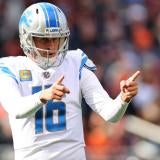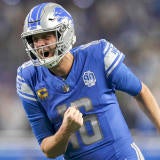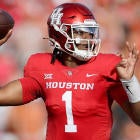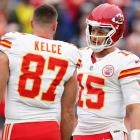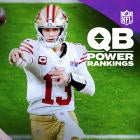Back in May the NFL writers and editors at CBSSports.com gathered together to discuss the key figures and moments of every NFL franchise in the Super Bowl era. Before long we were discussing every team's best and worst moments, along with their most-hated players and coaches, as well as some of the more bizarre things each team has been involved in. That spirited discussion produced this series -- the Good, Bad, Ugly and, sometimes, Bizarre moments for every team. We continue with the Denver Broncos.
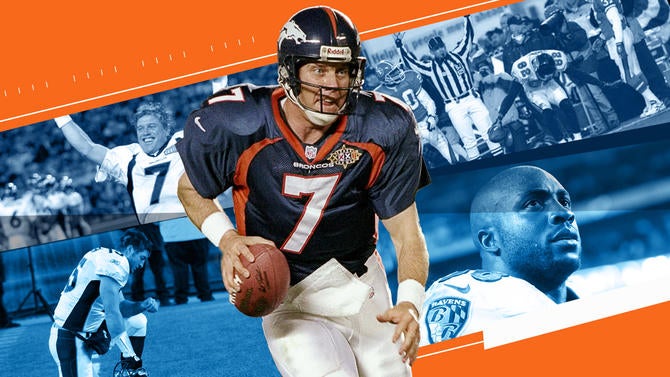
The Good
John Elway
Before we can even begin to discuss everything John Elway has accomplished as the quarterback and general manager of the Broncos, we need to remember that he wasn't even supposed to end up in Denver.
For one, the Baltimore Colts -- not the Broncos -- drafted him with the first-overall pick in 1983. The only problem: Elway refused to play for Baltimore and used his baseball career as leverage over the team. Eventually, the Colts dealt Elway to Denver. But before that trade materialized, another one briefly surfaced. Elway nearly became a Raider, per the Denver Post.
Instead, Elway joined the Broncos and became the face of the franchise. In their 56-year history, the Broncos have won three Super Bowls. Elway is responsible for all three of those titles. Yet, for so many years, Elway failed to shake an ugly (and unfair) narrative. He guided the Broncos to three Super Bowls in four seasons and he lost those three Super Bowls by 96 points or an average of 32 points per loss.
If Twitter existed in the 1980s, Elway's face would've been plastered with Crying Jordans.
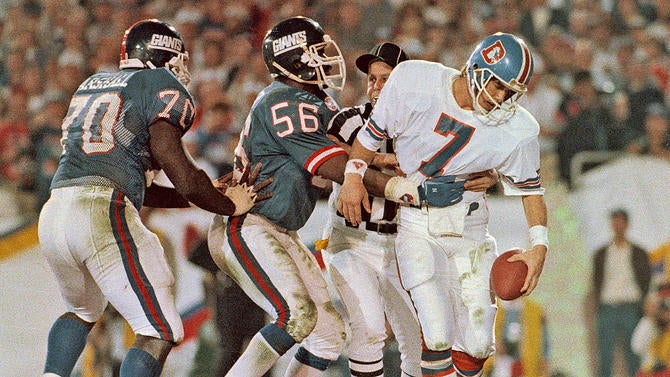
The last of those Super Bowl losses came following the 1989 season. And Elway didn't get another chance in the Super Bowl for eight more years. But when his next chance finally arrived in January of 1998, Elway came armed with a new weapon: Terrell Davis.
Davis rushed for 1,750 yards and 15 touchdowns in the regular season. And in Super Bowl XXXII, Davis threatened to steal the story from Elway, picking up 157 yards and three touchdowns. Meanwhile, Elway went just 12 of 22 for 123 passing yards, one interception, and one rushing touchdown.
But when the game needed its signature play, it was Elway who delivered one of the most iconic moments in franchise history.
Davis did the heavy lifting, but this one was for John.
Elway and Davis would team up for another Super Bowl the following season, in which Davis surpassed the 2,000-yard mark. Then, Elway retired as a two-time Super Bowl champion, slipping off the hypothetical Crying Jordan for good.
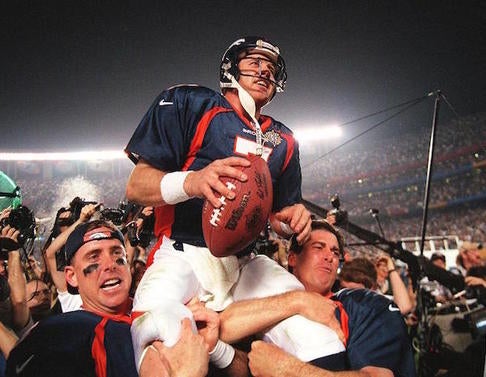
He wasn't done, though. In 2011, he took over as director of player personnel. A year later, he became the executive VP of football operations and general manager. Translation: The Broncos became Elway's team.
His first move? Win the Peyton Manning sweepstakes.
His second move? Fire a head coach who got the Broncos to a Super Bowl and four straight postseasons.
His third move? Win a Super Bowl in that new coach's first season by constructing one of the greatest defenses in the history of the game and overcoming horrendous quarterback play.
John Elway, the executive, might eventually wind up better than John Elway, the quarterback. That's insane considering Elway is sixth all-time in passing yards (51,475) and seventh in passing touchdowns (300). Since Elway began his work in the front office , the Broncos are 58-22 for an absurd winning percentage of .725. In the five years before Elway got involved with the team, the Broncos posted a winning percentage of .45.
Personally, though, my favorite part about Elway is how he -- as both a quarterback and an executive -- has proved the stupidity of team #SuperBowlWinz.
The biggest knock on Elway's record for the first 14 years of his career was his inability to win a Super Bowl. As soon as he won a Super Bowl, his career, in a way, was legitimized. That's great and all, but it's not really a fair way of viewing his career.
Consider this: In the three Super Bowl losses, Elway completed 46 percent of his passes, averaged 223 passing yards, 1.33 touchdowns (passing and rushing), and two interceptions per game. In the two Super Bowl wins, Elway completed 59 percent of his passes, averaged 222.9 passing yards, 1.5 touchdowns, and one interception per game.
The point being, he kind of stunk in all five of his championship games (he had a fine final game). The only difference is that he actually received the kind of support that he needed in the final two Super Bowls in the form of Terrell Davis, Rod Smith, Ed McCaffrey, Shannon Sharpe and a solid defense. Yet, Elway's choker label still disappeared after those two games, even though those championships were more about his supporting cast.
Then, as the general manager, Elway failed to win a Super Bowl with the best offense in football. When Manning and that offense wound up in their lone Super Bowl, they got thumped by one of the greatest defenses ever. But when the corpse of Manning and that offense arrived in this past season's Super Bowl, they walked away with the trophy. And like Elway before him, Manning ended the nonsensical narrative that he couldn't win in the big game.
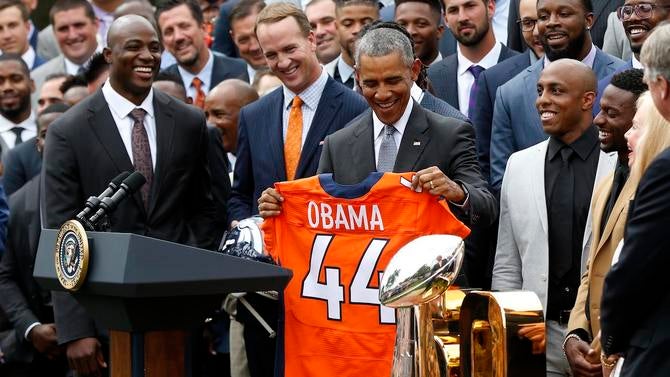
So, most of the Super Bowl success Elway has experienced -- both as a quarterback and general manager -- involved some pretty meh quarterback play and some stellar support from players other than the quarterback. Need more proof? In 2011, when Elway served as the director of player personnel, the Broncos made the playoffs with Tim freakin' Tebow as their quarterback.
But we'll get to Tebow soon enough.
The Bad
Losing to the 1996 Jaguars
Elway eventually shook the narrative, but he took his lumps along the way. The Broncos' loss to the Jaguars in the 1996 divisional round might've been the most devastating blow. According to Elway, it was worse than any of the three Super Bowl losses.
"Even though I had lost three Super Bowls," Elway told the NFL, "that Jacksonville game was the biggest loss of my life."
The Broncos had no business losing that game. The Jaguars were a second-year expansion team. They didn't even exist when Elway lost those first three Super Bowls. They only made the playoffs thanks to a missed field goal. Fresh off a 13-3 season, the Broncos entered as 12.5 point favorites (per PFR) over the 9-7 Jaguars. Heck, the Broncos even jumped out to a 12-0 first-quarter lead.
Then, something happened. The Broncos slipped and the Jaguars scored 23 answered points, with quarterback Mark Brunell leading the way, passing for 245 yards and two touchdowns, and adding 44 yards on the ground. In the fourth quarter, the Jaguars iced the game with a 16-yard touchdown courtesy Brunell's arm, eventually holding off the Broncos for a 30-27 win.
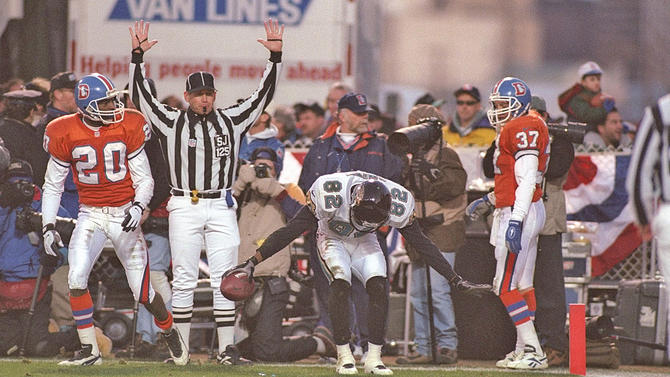
"(Brunell) out John Elway-d John Elway," Mark Schlereth told the NFL. "And they out Bronco-d the Broncos."
But really, Shannon Sharpe best summed up the game afterwards.
"I'm just going to go home, sit on my couch and probably cry," Sharpe said, per the Denver Post.
The silver lining: Elway never lost another playoff game.
The Ugly
Give Tim Tebow credit. For all the crap he takes, he remains undeterred in his pursuit of playing quarterback in the NFL.
It's been nearly four years since Tebow threw a somewhat meaningful pass and he still hasn't closed the door on a return to the NFL. At least that's what he told Larry King just last week.
But Tebow's not the ugly side of the Broncos' franchise because of his insistence on playing a position he's not capable of playing. After all, when Tebow quarterbacked the Broncos, he posted an 8-6 record and even won a playoff game. Sure, his numbers were pure garbage during those 14 games -- he completed 47.3 percent of his passes and posted a 75.1 passer rating -- but he at least handed the franchise one happy moment.

Tebow is the ugly side of the Broncos' franchise for different reasons.
Thought the Buccaneers' decision to take a kicker in the second round of this year's draft sucked? The Broncos actually used the 25th overall pick in the 2010 draft to take a quarterback with a throwing motion that resembles a wind-up toy.
ESPN's Sports Science even dedicated a segment on Tebow's wonky throwing motion, which followed him from Florida to the NFL.
Seriously -- the coach who built his name by working with Tom Brady looked at Tebow and thought, "This is our future franchise quarterback!" In actuality, this is what McDaniels thought:
"He has all the traits you look for," McDaniels said, per ESPN. "It's a good pick."
Josh McDaniels also wanted Matt Cassel over Jay Cutler, so I guess the warning signs were there. Anyway, here's a list of better players the Broncos should've chosen over Tebow:
- Devin McCourty
- T.J. Ward
- Rob Gronkowski
- Golden Tate
- Any of the remaining players in the draft
- Air Bud
What the Broncos did next is unforgivable. They won with Tebow -- rather, they won in spite of his efforts to doom the team. During that six-game winning streak in 2011, Tebow completed half of his pass attempts. He threw seven touchdowns. He averaged roughly 146 yards per game. I kid you not, during one of those wins, Tebow went 2 of 8. TWO completions!
Despite those numbers, Tebow received the credit, all because he "played" quarterback and scored a few iconic touchdowns in the fourth quarter. In the process, the Broncos created a monster. Not Tebow. His fans, a cult that relies on #QBWinz (a team statistic disguised as a quarterback statistic) as evidence for Tebow's alleged potential.
Tebow's cult isn't his fault, and neither is the fact that the Broncos took him in the first round. He genuinely seems like a good dude -- he really does. But he's not a good quarterback. He wasn't worthy of a first-round pick. And he sure as heck wasn't worth the noise that came along with his erratic arm.
The Bizarre
Elvis Dumervil's fax
Fax machines not only existed as recently as 2013, they also were used. Thanks to Elvis Dumervil, I know this is true. Thanks to Dumervil, players and agents may never use a fax machine again.
On March 15, 2013, with 35 minutes before the deadline, Dumervil decided to accept a $4 million paycut to remain with the Broncos. The key part here: He verbally agreed to the new contract. The paperwork wasn't signed.
With 35 minutes remaining on the clock, this shouldn't have been an issue. After all, it was 2013. Dumervil didn't need to actually ride a horse into Denver and shake John Elway's hand. He just needed to send them some paperwork.
The key part there: He needed to send them paperwork. He didn't need to fax them paperwork.
Dumervil's agent faxed them the paperwork. The fax didn't go through. And that left the Broncos in a tricky situation. If they waited for the fax that wasn't coming through to come through and didn't cut him before the deadline, they'd be forced to pay him his full salary. Even if they cut him, they'd blow nearly $5 million in dead money. The only way they would win is if the fax eventually came through.
With one minute to spare, the Broncos cut their losses -- rather, they cut Dumervil ... all because a fax didn't go through.
Hold on, contract not filed in time. Elvis Dumervil has been officially released
— Mike Klis (@MikeKlis) March 15, 2013
Wild stuff on Dumervil right now: It's clock management. Agent made a "colossal mistake," source says, by not getting signed contract faxed.
— Jeff Darlington (@JeffDarlington) March 15, 2013
And that's how the Broncos lost a pass rusher with 63.5 sacks in his six years with the team. Dumervil would go on to fire his agent and sign a contract with the Ravens, where he's still stationed today. He's notched 32.5 sacks in the past three seasons.
Of course, the Broncos can't complain. They happen to still have Von Miller on their roster. When the Broncos and Miller finally agree to that long-term deal before the July 15 deadline (c'mon, you know it's gonna happen), I'm guessing they won't be relying on a fax machine this time around.
* * *
More Good, Bad, Ugly and the Bizarre
Where's your favorite NFL team? Check the schedule below
AFC East
- June 13: New England Patriots
- 14: Miami Dolphins
- 15: New York Jets
- 16: Buffalo Bills
NFC East
- June 17: Dallas Cowboys
- 20: New York Giants
- 21: Philadelphia Eagles
- 22: Washington Redskins
AFC West
- June 23: Denver Broncos
- 24: Oakland Raiders
- 27: Kansas City Chiefs
- 28: San Diego Chargers
NFC North
- June 29: Chicago Bears
- 30: Detroit Lions
- July 1: Green Bay Packers
- 4: Minnesota Vikings
AFC South
- July 5: Houston Texans
- 6: Tennessee Titans
- 7: Jacksonville Jaguars
- 8: Indianapolis Colts
NFC South
- July 11: Carolina Panthers
- 12: Tampa Bay Buccaneers
- 13: Atlanta Falcons
- 14: New Orleans Saints
AFC North
- July 15: Pittsburgh Steelers
- 18: Baltimore Ravens
- 19: Cincinnati Bengals
- 20: Cleveland Browns
NFC West
- July 21: Arizona Cardinals
- 22: Los Angeles Rams
- 25: Seattle Seahawks
- 26: San Francisco 49ers







